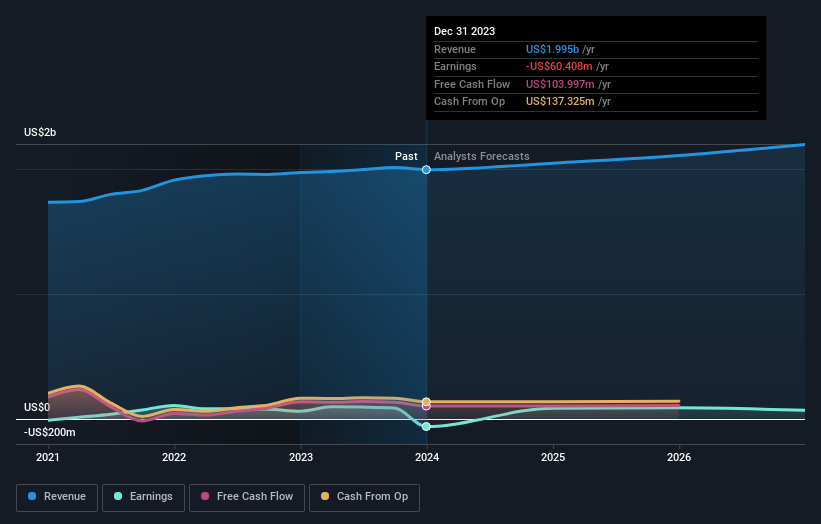Pediatrix Medical Group (NYSE:MD shareholders incur further losses as stock declines 6.5% this week, taking five-year losses to 66%
Statistically speaking, long term investing is a profitable endeavour. But that doesn't mean long term investors can avoid big losses. To wit, the Pediatrix Medical Group, Inc. (NYSE:MD) share price managed to fall 66% over five long years. That's an unpleasant experience for long term holders. We also note that the stock has performed poorly over the last year, with the share price down 36%. And the share price decline continued over the last week, dropping some 6.5%.
With the stock having lost 6.5% in the past week, it's worth taking a look at business performance and seeing if there's any red flags.
Check out our latest analysis for Pediatrix Medical Group
While the efficient markets hypothesis continues to be taught by some, it has been proven that markets are over-reactive dynamic systems, and investors are not always rational. One way to examine how market sentiment has changed over time is to look at the interaction between a company's share price and its earnings per share (EPS).
Pediatrix Medical Group became profitable within the last five years. On the other hand, it reported a trailing twelve months loss, suggesting it isn't reliably profitable. Other metrics may better explain the share price move.
The revenue decline of 2.6% isn't too bad. But it's quite possible the market had expected better; a closer look at the revenue trends might explain the pessimism.
You can see how earnings and revenue have changed over time in the image below (click on the chart to see the exact values).
This free interactive report on Pediatrix Medical Group's balance sheet strength is a great place to start, if you want to investigate the stock further.
A Different Perspective
Investors in Pediatrix Medical Group had a tough year, with a total loss of 36%, against a market gain of about 28%. However, keep in mind that even the best stocks will sometimes underperform the market over a twelve month period. Unfortunately, last year's performance may indicate unresolved challenges, given that it was worse than the annualised loss of 11% over the last half decade. Generally speaking long term share price weakness can be a bad sign, though contrarian investors might want to research the stock in hope of a turnaround. I find it very interesting to look at share price over the long term as a proxy for business performance. But to truly gain insight, we need to consider other information, too. Take risks, for example - Pediatrix Medical Group has 1 warning sign we think you should be aware of.
Of course Pediatrix Medical Group may not be the best stock to buy. So you may wish to see this free collection of growth stocks.
Please note, the market returns quoted in this article reflect the market weighted average returns of stocks that currently trade on American exchanges.
Have feedback on this article? Concerned about the content? Get in touch with us directly. Alternatively, email editorial-team (at) simplywallst.com.
This article by Simply Wall St is general in nature. We provide commentary based on historical data and analyst forecasts only using an unbiased methodology and our articles are not intended to be financial advice. It does not constitute a recommendation to buy or sell any stock, and does not take account of your objectives, or your financial situation. We aim to bring you long-term focused analysis driven by fundamental data. Note that our analysis may not factor in the latest price-sensitive company announcements or qualitative material. Simply Wall St has no position in any stocks mentioned.

 Yahoo Finance
Yahoo Finance 
